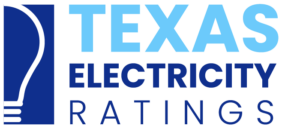
Electricity Customers Will Survive the Texas Power Grid Failure
One impish pal privately quipped to me that news about the Texas freeze reminded him of Sunday morning church after a Saturday night chili festival — lots of strained grimaces, startling noises, and mortified amazement. Still, crude humor aside, Texas energy customers are rightly outraged at events that grew into a federally declared disaster. With this ordeal slowly resolving, many electricity consumers are worrying about their electricity in the coming months. Could your Texas electricity provider go out of business? How might the Texas electricity market change? Will your energy rates increase? Of course, we’ve been watching all the moving parts on this. To help keep you informed, we’re going to drill down into the latest REP news. That way, we can show energy customers how to best weather the Texas grid failure.
Texas Retail Electricity Providers Ordeal
To begin getting a handle on all this, it helps to understand something of the REP perspective. During a normal Texas winter, most REPs plan for volatile electric prices. They contract with generators to buy electric supply in advance at a fixed price. This way, the REPs line up enough electricity as a hedge against prices spiking later on the wholesale markets. Those REPs that didn’t hedge enough risk paying those high prices. REPs also need to have enough collateral to do transactions in the wholesale market. They have just 72 hours to pay ERCOT the fees and collateral requirements for the transaction. If they default, they lose their customers.
But no one prepared for such extreme cold hitting Texas. Rates went higher and higher. When generators went off line, the wholesale rate rose to the $9,000 cap. At that point, ERCOT began asking for increasing amounts of collateral to guarantee each increasingly expensive transaction. At one point, the Chicago-based Exelon, which operates several natural gas generators in Texas, posted $1.4 billion in collateral to ERCOT.
Obviously, this kind of sustained demand for cash threatens the financial stability of smaller REP companies. Add to this the additional financial strain due the PUC suspending billing and smaller, weaker REPs will struggle.
Not all the casualties so far have been REPs. The Brazos Electric Power Cooperative Inc, the state’s the oldest electric power cooperative filed for bankruptcy protection in Houston on March 1. The Coop which has 1.5 million customers cited a disputed $2.1 billion bill from ERCOT which includes $1.8 billion in collateral.
Expect Higher Texas Electricity Bills From Usage
Texas building codes do not require homes to efficiently withstand the rare brutal cold that came to visit. At such low temperatures, for example, electric baseboard heat would run constantly. Even normally efficient air-source heat pump systems would run almost continuously, relying on auxiliary electric resistance heaters.
Most REPs are warning their customers to expect higher bills due high usage from the record-setting cold temperatures. They are also reassuring their energy customers with fixed rate plans that their rates stayed put. Likewise, many retail electric providers are also assuring their customers on variable rate plans that these rates are not directly linked to wholesale prices and do not change in the middle of the cycle.
Many Texas REPS Are Still Operating
This list names just a few REPs that are doing business in ERCOT.
APG&E The company announced to its customers that it is financially stable. APG&E also applied for volunteer POLR status.
Champion Energy Services This provider announced on February 23 that there would be no impact on the electricity rates to residential customers. It added that residential customers whose contracts expired will be billed at the variable rate published last month.
Constellation Energy The company reassures their customers that they are still in business. Fixed rate energy customers will see no rate changes but variable rate customers could see changes to monthly rates.
Gexa Energy The company told its customers on February 22 that their variable rates do not change during a billing cycle and so not linked to real-time wholesale market pricing. Gexas has applied to be designated as a volunteer POLR .
Payless Power This REP says that customer plans are safe from wholesale rates. Payless did not raise either its fixed or variable plan rates during the storm and will not increase them at this time.
Pulse Power The company offered customers who cut usage by 10% a chance to win a Tesla Model 3. Pulse Power estimates says its fixed rate customers will see only a small increase in their bills.
Reliant Energy The company announced residential customers would only be charged according to their plan’s rate for the month. Reliant filed a request with the Texas PUC to be a volunteer POLR.
Spark Energy On a February 22 press release, the company wanted to assure its customers that it has ample liquidity.
TriEagle Energy The REP told customers that it’s not going anywhere and that their rates are insulated from wholesale prices. Energy customers may see usage updates for days they were without power.
TXU Energy The company said in its February 21 release that customers “may experience higher than normal bills due to higher usage” but that they “will be insulated from storm-related rate increases.”
ERCOT Seeks Billions For Texas Electricity
Companies are still taking stock of their losses. With the financial consequences still unfolding it’s not clear yet which REPs are in financial stress. While ERCOT covered the roughly $2.1 billion in REP debt with $800 million it owed REPs, providers are still on the hook for hundreds of millions of dollars. According to some experts, if ERCOT doesn’t get paid sometime, then the state of Texas might need to bail out its grid manager.
ERCOT’s Providers of Last Resort
Almost as soon as the crisis ended, the Texas PUC began mobilizing its Provider of Last Resort (POLR)companies. POLR companies are default electricity providers that shoulder the load of those REPs who could no longer afford to do business in Texas. TXU Energy will take over supplying most customers whose REP fails.
As of Friday, February 26, ERCOT revoked all rights of Griddy Energy “to conduct activity under the ERCOT Protocols” and began transitioning its 10,127 service addresses to POLR providers enmasse. Griddy also faces a class action lawsuit seeking $1 billion in relief and a separate suit filed by Texas Attorney GeneralKen Paxton charging that the company misled customers and blindsided them with surge pricing during the freeze.
Future Competition in the Texas Electricity Market?
The premise of Texas deregulation was to break up the big monopolies and bring in competitors to drive down prices. We yet don’t know the exact extent of financial damage to retailers. However, it’s pretty safe to say that the big freeze could become an extinction event among retail providers.
One current common line of reasoning holds numerous REPs could leave the market. While those that stay might face less competition, they’d also face bigger companies with far deeper pockets. Vistra Corp, for example, which owns TXU and Ambit Energy, announced it would take a one-time loss somewhere in the rang of $900 million to $1.3 billion.
Smaller REPs may sell off their Texas customer books to the big fish in a shrinking ERCOT pond. That would free them to swim off to northern deregulated states that know how to prepare for cold weather. Unfortunately, that kind of consolidating reduces competition and could eventually just result in raising Texas electricity rates.
Whether this bleak assessment comes to pass depends on how regulators and legislators respond to the electric market’s needs. To be sure, it won’t be cheap and it won’t be quick.
What’s Our Advice To Energy Customers In Texas
Obviously, REPs will need to pay off debt from this crisis and that usually involves raising rates. The bitter cold that hit the country also helped burn through a record natural gas supply. Unfortunately, with natural gas production expected to be lower this summer, EIA predicts that U.S. electricity rates will rise. Texans could see electricity prices rising as soon as the summer cooling season starts.
However, the good news right now is that energy customers won’t see any immediate impact on rates. Plus, the spring shoulder months will begin soon. This is when demand for natural gas and electricity falls and rates tend to dip.
With all that in play, Matt Oberle, Head of Operations at Texas Electricity Ratings, puts the case simply:
The biggest piece of advice I can give customers not under contract is to lock into a 6 or 12 month fix rate with anyone. Rates are a bit higher now. But customers will enjoy substantial savings compared to the high risk swings we expect to see on variable rate plans. Customers can return after 6 or 12 months after the market stabilizes and shop again for a new plan.
So now more than ever it’s the best time to find a new Texas electricity provider.
